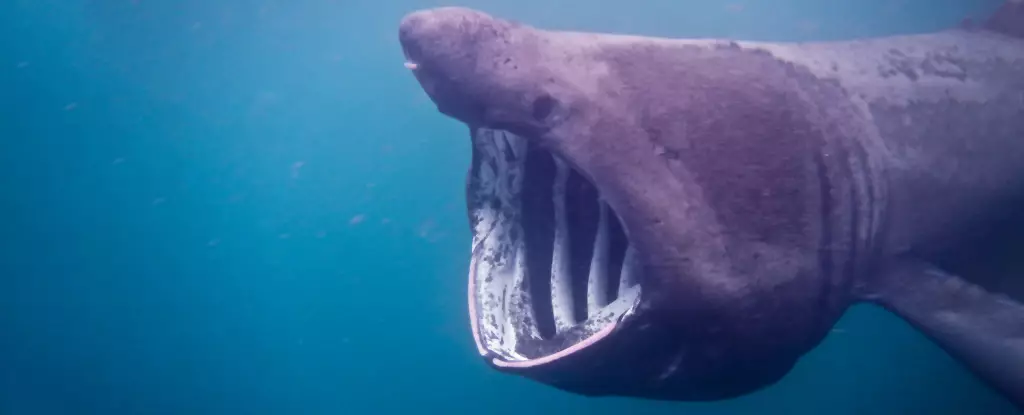In a tragic turn of events, a basking shark was recently caught and tagged by a team of researchers in Irish waters, only to be struck by a vessel shortly afterward. This incident sheds light on the dangers that marine animals face due to boat collisions and underscores the urgent need for greater awareness and education on this issue.
Basking sharks, like their whale shark cousins and baleen whales, are filter feeders that spend much of their time near the ocean’s surface. This feeding habit makes them particularly vulnerable to boat strikes, as they often come into close contact with vessels while feeding on plankton. The recent incident involving the tagged basking shark highlights just how susceptible these animals are to collisions with boats.
The footage captured on the device attached to the injured shark provides valuable insight into the immediate and long-term effects of boat strikes on marine megafauna. After being struck, the shark exhibited changes in behavior, including ceasing to feed and retreating to the ocean floor. This highlights the potential negative consequences of such collisions, even if they are not immediately fatal.
It is essential to address the threat of boat strikes on endangered marine species like the basking shark. The establishment of marine protected areas, such as the proposed Irish National Marine Park, is crucial for providing these animals with safe habitats where they can feed and thrive without the risk of collisions with vessels. Additionally, more research is needed to fully understand the short- and long-term impacts of boat strikes on the recovery of these species.
The recent incident involving the basking shark serves as a stark reminder of the dangers that marine animals face due to boat strikes. It is imperative that we take action to protect endangered species from the threats posed by human activities, such as vessel traffic in their habitats. Through increased awareness, education, and conservation efforts, we can work towards ensuring a safer future for these vulnerable marine creatures.


Leave a Reply